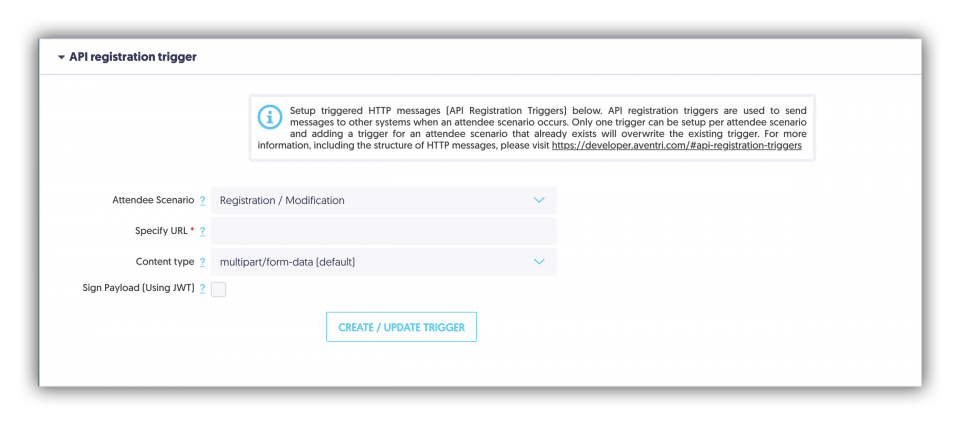Stova API
ASU's contract with Stova includes access to Stova's application programming interface (API) functions. If they have the programming know-how, developers can use APIs to create custom solutions and features.
Anyone interested in developing using the Stova APIs will find documentation at developer.aventri.com.
Getting an API Key
API keys are used to authorize access to Stova's API and associate API calls with the ASU Stova account.
There are two types of API keys available:
- Non-master key
- Master key
During the development phase, you should use a non-master key. A non-master key has a controlled level of access and area associated to specific event registration sites.
Once development and testing is complete, developers may request the Master key. The master key provides all access to the ASU Stova account.
To request an API key, contact Stova @ ASU.
API Registration Trigger
API registration triggers are used to send messages to other systems when an attendee scenario occurs, such as registering for an event or cancelling. API registration triggers can be an alternative to using API keys.
For example, the Salesforce Maroon template is programmed using an API registration trigger to send event registration data to a third-party system (Mulesoft) that then sends the date into Salesforce.
Only one trigger can be setup per attendee scenario and adding a trigger for an attendee scenario that already exists will overwrite the existing trigger.

Options
- Attendee Scenario
- Registration/modification (most common)
- Cancellation
- Content type
- multipart/form-data
- application/x-www-form-urlencoded (most common)
To request programming of the API registration trigger, contact Stova @ ASU. Provide the Event Registration name & number and the URL to the third-party program/service.
For more information, including the structure of HTTP messages, please visit the Stova Developer website.